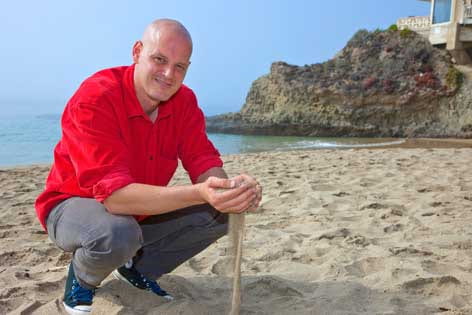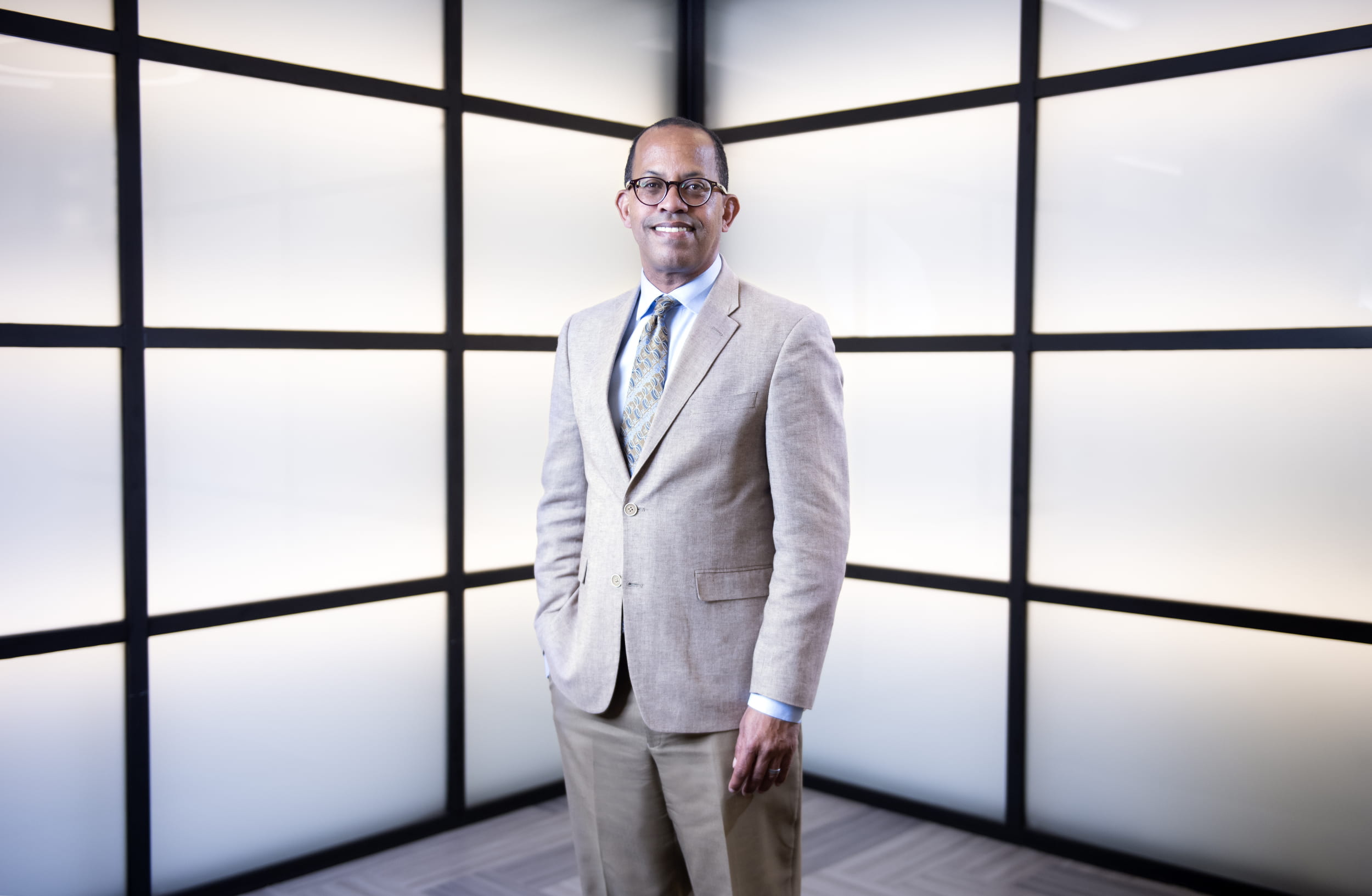Staging a comeback from cancer
A Laguna Beach man was helping his neighbor, a UCI oncologist, with a fundraising campaign for young adult cancer patients when he joined their ranks.

Cancer was the last thing on Angelo Giuliano’s mind when the high-energy entrepreneur experienced bouts of fatigue in early 2009. The 28-year-old attributed it to 60-hour weeks launching his advertising business.
When the itching began soon after, Giuliano begged his wife to lay off the laundry softener. That didn’t help, so the Laguna Beach couple took their pugs to the vet to be checked for fleas.
No fleas. But Giuliano had no time to fret. He was juggling an early-morning barista job with night and weekend work for his business. He also had begun doing strategic planning for a campaign to help adolescent and young adult cancer patients initiated by his neighbor, Dr. Leonard Sender, a UC Irvine oncologist.
In mid-May, Giuliano noticed a golf-ball-size bump below his left armpit and asked a co-worker to take a look. “Angelo,” she said, “it feels like a swollen lymph node. I think you might have an infection.”
Giuliano did a computer search for information on swollen lymph nodes and itching. “All these cancer sites popped up,” he recalls. “I was a little concerned, but I thought there was no way I could possibly have cancer.”
He mentioned it to his wife, Leah, the next evening, a Saturday. He balked initially when she insisted that he call Sender, not wanting to bother his friend, who was away for his daughter’s college graduation.
“I don’t want to alarm you,” Sender told Guiliano when he finally called, “but it sounds like Hodgkin’s or non-Hodgkin’s disease. I want to get you in right away for testing.”
On Sunday, Sender alerted his medical team at UCI’s Chao Family Comprehensive Cancer Center to schedule Giuliano for a battery of tests Monday morning. Wednesday night, Sender called with the needle biopsy results: cancer.
Giuliano had anaplastic large T-cell non-Hodgkin’s lymphoma, a rare and aggressive cancer. He was immediately put on an intensive regimen of chemotherapy.
At first, Giuliano thought Sender was making sure he got preferential care. “I felt like a red carpet was laid out for me at UC Irvine,” he says. “Then I came to realize I wasn’t special – everybody is treated the same way.”
The four long months of chemotherapy were hard, but Giuliano seldom let it slow him down. He was determined to build his business, all the while preparing for the worst. He wanted to be certain his wife was provided for, and all of his senses seemed to be heightened.
One day as he and Leah lay beside each other on the beach, Giuliano marveled at the texture of the sand and contemplated how much he’d miss the rich blue of the sky. “I thought to myself, ‘Well, I’d miss red too – and the color orange, the sound of the surf. And I’d miss so much the warmth of my wife’s body next to me,’” he recalls.
In an instant, that idea flipped on its head: “I realized it would be me that was missing, that it would be my wife feeling these things. I had to know that she would be OK.” He extracted a promise from Leah that she would remarry, have kids “and enjoy life to the fullest.” But she felt in her heart that their story was far from over.
Several weeks later, scans and tests showed that Giuliano’s lymph nodes were clear of cancer. He has a 70 percent to 80 percent chance of being cured and will be tracked closely for five years. “It’s been fantastic to watch Angelo’s positive attitude at work,” says Sender.
Giuliano credits the doctor. “Lennie is a lifesaver, truly. It was as if I was hanging by one finger from a cliff, about to plummet to my death. He and his team pulled me up and saved my life.”
He’s still amazed by the coincidence of his volunteer work for Sender’s SeventyK campaign, which aims to raise awareness of – and research funding for – the 70,000 American teens and adults under 40 each year who, like Giuliano, are diagnosed with cancer. It’s a demographic prone to especially virulent cancers, Sender says, a group routinely ignored in studies and one that reacts very differently to standard treatments for small children and people over 40.
Giuliano is regaining his stamina and making plans for the future. But the intensity of that moment on the beach with Leah has stayed with him. “I’ll never be able to express in words my appreciation for Dr. Sender,” he says. “It sounds stupid, but cancer has been a gift. I appreciate life so much more.”

